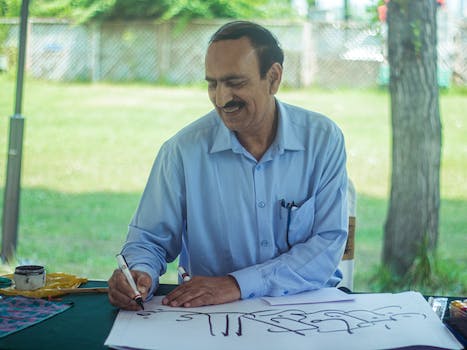

-
Table of Contents
"Unveiling the Truth: Debunking 8 Common Writing Myths"
Introduction
Introduction:
Debunking 8 Common Writing Myths
Writing is a craft that has been surrounded by numerous myths and misconceptions over the years. These myths often hinder aspiring writers from reaching their full potential and can lead to unnecessary self-doubt and frustration. In this article, we aim to debunk eight common writing myths that have persisted in the writing community. By dispelling these myths, we hope to empower writers to embrace their creativity, hone their skills, and overcome any obstacles that may stand in their way. So, let's dive in and separate fact from fiction in the world of writing.
The Truth Behind Write What You Know: Debunking the Myth
The Truth Behind Write What You Know: Debunking the Myth
When it comes to writing advice, one of the most common phrases you'll hear is "write what you know." This advice has been passed down from generation to generation, with many aspiring writers believing that they can only write about their own experiences. However, this notion is nothing more than a myth that needs to be debunked.
The idea behind "write what you know" is that by drawing from personal experiences, writers can create more authentic and believable stories. While it is true that personal experiences can add depth and realism to a story, it is not a requirement for good writing. In fact, some of the most successful and acclaimed authors have written about subjects they have little or no personal experience with.
One of the reasons why this myth persists is because it is often misunderstood. Writing what you know does not mean limiting yourself to only writing about your own life. It means using your knowledge and understanding of the world to create compelling and relatable stories. This can include researching and learning about different subjects, cultures, and time periods to bring a story to life.
Another reason why this myth is misleading is that it assumes that writers can only write about things they have personally experienced. This is simply not true. Writers have the ability to imagine and empathize with characters and situations that are completely outside of their own experiences. In fact, this is one of the greatest strengths of storytelling – the ability to transport readers to different worlds and perspectives.
Furthermore, writing what you know can actually limit creativity and imagination. If writers only stick to what they know, they may miss out on exploring new ideas and pushing the boundaries of their writing. By stepping outside of their comfort zones and venturing into unfamiliar territory, writers can challenge themselves and create truly unique and captivating stories.
It is also important to note that writing what you know does not mean writing only about your own emotions and experiences. Writers have the ability to tap into universal emotions and themes that resonate with readers from all walks of life. By focusing on these universal truths, writers can create stories that are relatable and meaningful to a wide audience.
In conclusion, the myth of "write what you know" is just that – a myth. While personal experiences can certainly enhance a story, they are not a requirement for good writing. Writers have the ability to research, imagine, and empathize with characters and situations that are completely outside of their own experiences. By debunking this myth, writers can free themselves to explore new ideas and create truly unique and captivating stories. So, the next time you sit down to write, remember that you have the power to write about anything and everything – not just what you know.
Breaking the Stereotype: Debunking the Myth of the Tortured Writer

Debunking 8 Common Writing Myths
Writing is often romanticized as a solitary and torturous endeavor, with writers locked away in dimly lit rooms, battling their inner demons as they struggle to put words on paper. This stereotype of the tortured writer has been perpetuated by countless movies, books, and articles. However, it is time to break free from this misconception and debunk the myth of the tortured writer.
One common myth is that writers must wait for inspiration to strike before they can write. This belief suggests that writing is a mystical process that cannot be forced. However, the truth is that writing is a skill that can be developed through practice and discipline. Professional writers understand that they must sit down and write, regardless of whether they feel inspired or not. By establishing a writing routine and setting aside dedicated time for writing, writers can overcome the myth of waiting for inspiration.
Another myth is that writers must have a natural talent for writing. While it is true that some individuals may have a predisposition for writing, anyone can become a skilled writer with enough practice and dedication. Writing is a craft that can be honed through reading, studying grammar and style, and seeking feedback from others. By dispelling the myth of natural talent, aspiring writers can feel empowered to pursue their passion and improve their writing skills.
A third myth is that writing is a solitary activity. While it is true that writing often requires periods of solitude for concentration and focus, it is also a collaborative process. Writers can benefit greatly from sharing their work with others, whether through writing groups, workshops, or online communities. By seeking feedback and engaging in discussions with fellow writers, individuals can improve their writing and gain valuable insights.
Another common myth is that writing is a linear process, with writers starting at the beginning and progressing in a straight line towards the end. In reality, writing is a messy and iterative process. Writers often jump back and forth between different sections, revise their work multiple times, and experiment with different ideas and structures. By embracing the non-linear nature of writing, writers can free themselves from the pressure of following a strict timeline and allow their creativity to flow.
A fifth myth is that writing is a solitary activity. While it is true that writing often requires periods of solitude for concentration and focus, it is also a collaborative process. Writers can benefit greatly from sharing their work with others, whether through writing groups, workshops, or online communities. By seeking feedback and engaging in discussions with fellow writers, individuals can improve their writing and gain valuable insights.
Another myth is that writing is a solitary activity. While it is true that writing often requires periods of solitude for concentration and focus, it is also a collaborative process. Writers can benefit greatly from sharing their work with others, whether through writing groups, workshops, or online communities. By seeking feedback and engaging in discussions with fellow writers, individuals can improve their writing and gain valuable insights.
A seventh myth is that writing is a solitary activity. While it is true that writing often requires periods of solitude for concentration and focus, it is also a collaborative process. Writers can benefit greatly from sharing their work with others, whether through writing groups, workshops, or online communities. By seeking feedback and engaging in discussions with fellow writers, individuals can improve their writing and gain valuable insights.
Lastly, there is a myth that writing is a solitary activity. While it is true that writing often requires periods of solitude for concentration and focus, it is also a collaborative process. Writers can benefit greatly from sharing their work with others, whether through writing groups, workshops, or online communities. By seeking feedback and engaging in discussions with fellow writers, individuals can improve their writing and gain valuable insights.
In conclusion, it is important to debunk the myth of the tortured writer and break free from the stereotypes that surround the writing process. Writing is not a mystical endeavor that requires waiting for inspiration or possessing natural talent. It is a skill that can be developed through practice, discipline, and collaboration. By dispelling these common myths, aspiring writers can feel empowered to pursue their passion and improve their writing skills.
Unveiling the Secrets: Debunking the Myth of Overnight Success in Writing
Debunking 8 Common Writing Myths
Writing is often romanticized as a glamorous and effortless pursuit, with visions of overnight success and fame. However, the reality is far from this idealized image. In this article, we will unveil the secrets and debunk the myth of overnight success in writing.
One of the most common myths surrounding writing is that all successful writers achieve their fame and fortune overnight. This myth perpetuates the idea that writing is a quick and easy path to success. However, the truth is that most successful writers have spent years honing their craft and perfecting their skills. Writing is a journey that requires dedication, perseverance, and a lot of hard work.
Another myth that often circulates is that writing is a solitary endeavor. Many people believe that writers lock themselves away in a secluded cabin, typing away in isolation. While it is true that writing requires solitude and focus, it is also a collaborative process. Writers often seek feedback from editors, beta readers, and fellow writers to improve their work. Writing is not a solitary pursuit, but rather a community effort.
A common misconception is that writing is a talent that you are born with. Many people believe that you either have the gift of writing or you don't. However, writing is a skill that can be learned and developed. While some individuals may have a natural inclination towards writing, anyone can become a proficient writer with practice and dedication. Writing is not limited to a select few; it is accessible to all who are willing to put in the effort.
Another myth that needs debunking is the idea that writing is all about inspiration. Many aspiring writers believe that they need to wait for the perfect moment of inspiration before they can start writing. However, professional writers understand that inspiration is not a prerequisite for writing. Writing is a discipline that requires consistency and commitment. By establishing a writing routine and setting aside dedicated time for writing, writers can overcome the myth of waiting for inspiration.
A prevalent myth in the writing world is that writing is a solitary pursuit. Many people envision writers as introverted individuals who prefer to be alone with their thoughts. While it is true that writing requires solitude and introspection, it is also a collaborative process. Writers often seek feedback from editors, beta readers, and fellow writers to improve their work. Writing is not a solitary endeavor, but rather a community effort.
Another myth that needs debunking is the belief that writing is a linear process. Many people think that writers start at the beginning and write straight through to the end. However, the reality is that writing is a messy and non-linear process. Writers often jump around, revising and editing as they go. The first draft is rarely perfect, and it is through the process of revision that a piece of writing truly comes to life.
A common myth surrounding writing is that you need to have a formal education in order to be a successful writer. Many aspiring writers believe that they need a degree in creative writing or English literature to be taken seriously. However, while a formal education can be beneficial, it is not a prerequisite for success in writing. Many successful writers have achieved acclaim without a formal education. What matters most is the quality of the writing itself, not the credentials of the writer.
Finally, a prevalent myth is that writing is a solitary pursuit. Many people envision writers as introverted individuals who prefer to be alone with their thoughts. While it is true that writing requires solitude and introspection, it is also a collaborative process. Writers often seek feedback from editors, beta readers, and fellow writers to improve their work. Writing is not a solitary endeavor, but rather a community effort.
In conclusion, the myth of overnight success in writing is just that - a myth. Writing is a journey that requires dedication, perseverance, and hard work. It is not a talent that you are born with, but a skill that can be learned and developed. Writing is not a solitary pursuit, but a collaborative process. It is not a linear process, but a messy and non-linear one. And finally, a formal education is not a prerequisite for success in writing. By debunking these common myths, aspiring writers can approach their craft with a realistic and informed perspective.
Q&A
1. What is a common writing myth about inspiration?
A common writing myth is that writers need to wait for inspiration to strike before they can start writing.
2. What is a common writing myth about grammar?
A common writing myth is that using complex grammar and vocabulary makes writing better.
3. What is a common writing myth about editing?
A common writing myth is that editing is only necessary for correcting spelling and grammar errors.
Conclusion
In conclusion, debunking common writing myths is essential for aspiring writers to enhance their skills and overcome misconceptions. By dispelling these myths, writers can gain a clearer understanding of the writing process, improve their craft, and ultimately produce more effective and engaging pieces of work. It is important to recognize that writing is a skill that can be developed through practice, feedback, and continuous learning, rather than relying on misguided beliefs. By challenging these myths, writers can unlock their full potential and create impactful and authentic stories.











